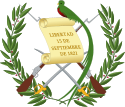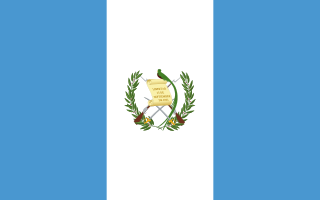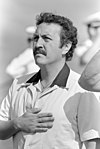
General elections were held in Guatemala on 7 March 1982. Ángel Aníbal Guevara, hand-picked successor of previous president Romeo Lucas García, was declared the winner of the presidential election and was scheduled to take office on 1 July. However, the election was widely denounced as fraudulent by elements on both sides of the political spectrum and an army-led coup d'état on 23 March instead installed the three-man junta of General Efraín Ríos Montt, General Horacio Maldonado Schaad, and Colonel Francisco Luis Gordillo Martínez.
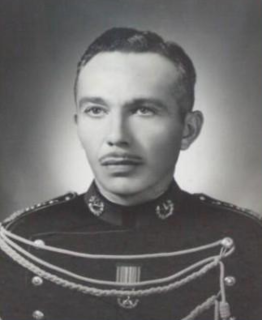
General elections were held in Guatemala on 3 March 1974. No candidate received more than 50% of the vote in the presidential election, resulting in Kjell Eugenio Laugerud García being elected president by Congress on 12 March. The Congressional elections were won by an alliance of the Institutional Democratic Party and the National Liberation Movement. Voter turnout was 46.41% in the presidential election.

General elections were held in Guatemala on 6 March 1966. After no candidate received 50% or more of the national vote, Julio César Méndez Montenegro was elected President by Congress on 10 May. On the Congressional elections, the Revolutionary Party won 28 of the 54 seats. Voter turnout was 56.27% in the presidential election and 55.01% in the Congressional elections

General elections were held in Guatemala on 1 March 1970. No candidate received over 50% of the vote in the presidential election, resulting in Carlos Manuel Arana Osorio being elected by Congress on 21 March. The National Liberation Movement-Institutional Democratic Party alliance won the Congressional elections. Voter turnout was 53.82% in the presidential election and 53.26% in the Congressional elections.

General elections were held in Guatemala on 5 March 1978. No candidate received more than 50% of the vote in the presidential election, resulting in Fernando Romeo Lucas García being elected president by Congress on 13 March. The Congressional elections were won by the National Liberation Movement.
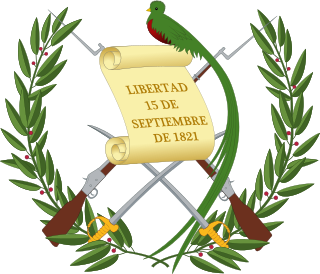
Constitutional Assembly elections were held in Guatemala on 1 July 1984. Although the National Centre Union received the most votes, an alliance of the National Liberation Movement and Nationalist Authentic Centre emerged as the largest bloc with 23 of the 88 seats. Voter turnout was 78%.

General elections were held in Guatemala on 11 November 1990. with a second round of the presidential election held on 6 January 1991. The presidential election resulted in a victory for Jorge Antonio Elías of the Movement of Action in Solidarity, whilst the National Centre Union won the Congressional elections. Voter turnout was 56.4% in the elections on 11 November 1990 and 45.2% in the elections on 6 January 1991.

Parliamentary elections were held in Guatemala on 14 August 1994, following the premature dissolution of Congress during the 1993 constitutional crisis, and in view of implementing constitutional reforms approved in January 1994. The result was a victory for the Guatemalan Republican Front, which won 33 of the 80 seats. Voter turnout was just 21%.

General elections were held in Guatemala on 12 November 1995, with a second round of the presidential elections held on 7 January 1996. Álvaro Arzú of the National Advancement Party won the presidential election, whilst his party also won the Congressional elections. Voter turnout was 46.8% on 12 November and 36.9% on 7 January.
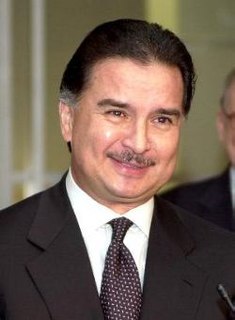
General elections were held in Guatemala on 7 November 1999, with a second round of the presidential elections on 26 December. Alfonso Portillo won the presidential elections, whilst his Guatemalan Republican Front also won the Congressional elections. Voter turnout was 53.8% on 7 November and 40.4% on 26 December.

Parliamentary elections were held in Guatemala on 16 December 1959, in order to elect half the seats in Congress. Voter turnout was just 44.91%.

Parliamentary elections were held in Guatemala on 3 December 1961, in order to elect half the seats in Congress. Following the election, the National Democratic Reconciliation Party-National Democratic Movement-Democratic Unity Party alliance held 50 of the 66 seats. Voter turnout was just 44.48%.

Constitutional Assembly elections were held on 24 May 1964. The Movement of National Liberation and the Revolutionary Party both won 10 seats, although sixty members were appointed by the military government.
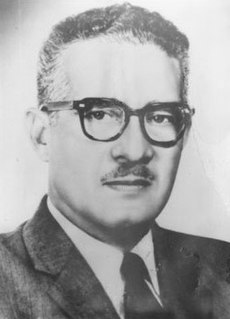
General elections were held in Guatemala on 20 October 1957. Miguel Ortiz Passarelli won the presidential election. However, the elections were nullified on 23 October 1957 following protests against electoral fraud.

Parliamentary elections were held in Guatemala on 18 December 1955. The result was a victory for the National Democratic Movement, which won 58 of the 66 seats in Congress.
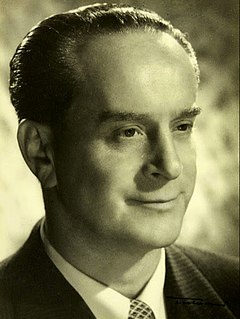
Presidential elections were held in Guatemala between 10 and 12 November 1950. The result was a victory for Jacobo Arbenz Guzmán, who received 65.44% of the vote. Voter turnout was 71.62%.
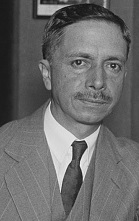
Presidential elections were held in Guatemala between 17 and 19 December 1944. The result was a victory for Juan José Arévalo, who received 86.25% of the vote.

General elections were held in Guatemala between 6 and 8 February 1931. In the presidential election Jorge Ubico was elected unopposed, after the remaining sector of the old Liberal Party did not object to his candidacy, whilst the Conservative Party was too disorganised and discredited from the Lázaro Chacón González era to put forward a candidate. Ubico's Progressive Liberal Party, formed by a union of the two wings of the divided Liberal Party also won the parliamentary election unopposed.
Jorge Ubico y Castañeda’s presidential term was extended to 15 March 1949 by a Constituent Assembly on 11 September 1941. Assumed office 15 March 1943.

General elections were held in Guatemala on 5 December 1926. The presidential election resulted in a victory for Lázaro Chacón González, who received 88.6% of the vote. Whilst the elections were rigged, the Progressive Liberal Party did manage to win some seats in the Congress.
